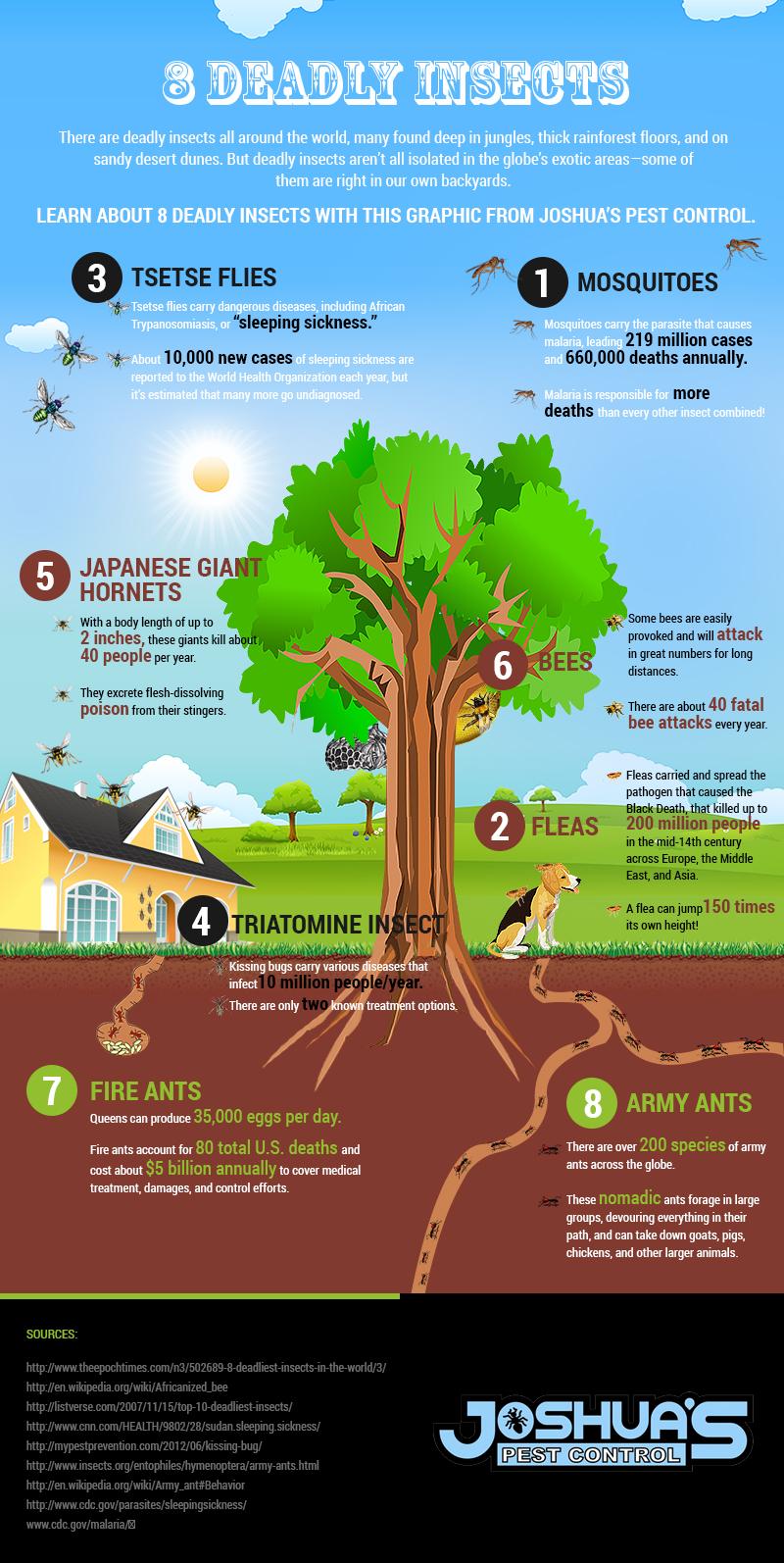Prepare To Turn Your Yard Right Into A Pest-Free Place Making Use Of These Innovative Ideas And Methods
Prepare To Turn Your Yard Right Into A Pest-Free Place Making Use Of These Innovative Ideas And Methods
Blog Article
Content Create By-Thorpe Trujillo
Visualize your yard as a shelter, a location of harmony and appeal. However, the visibility of outside parasites can rapidly interrupt this idyllic image. What happens if there were basic yet effective methods to keep these undesirable visitors away and shield your yard oasis? By complying with a few practical ideas and implementing all-natural methods, you can produce an unified exterior area where your plants can grow undisturbed.
Natural Insect Deterrents
To keep insects away from your garden normally, plant aromatic herbs like mint and lavender. purple pest control smelling plants not just include charm to your garden yet also serve as effective bug deterrents. Parasites like insects, flies, and even some garden-damaging insects are driven away by the strong scents released by these herbs. Simply placing licensed pest control near me around your garden can help produce an all-natural barrier against undesirable pests.
In addition to mint and lavender, take into consideration planting various other herbs like rosemary, basil, and lemongrass to even more enhance your yard's pest-proofing capabilities. These natural herbs not only act as natural repellents yet additionally have the included benefit of serving in food preparation or crafting home made solutions.
Strategic Plant Positioning
Take into consideration the format of your yard and the types of plants you have to purposefully put them for maximum pest-proofing performance.
Beginning by grouping plants with comparable resistance to insects with each other. By doing this, you can produce an all-natural obstacle that hinders bugs from spreading throughout your yard.
Additionally, putting pest-repelling plants like marigolds, lavender, or mint near more at risk plants can assist secure them. Tall plants, such as sunflowers or corn, can function as a shield for much shorter plants against pests like bunnies or ground-dwelling insects.
Remember to leave pest control ors between plants to boost air circulation and reduce the threat of diseases that pests could lug.
In addition, consider planting strong-smelling herbs like rosemary or basil near prone plants to puzzle insects' detects and make it harder for them to find their targets.
Reliable Pest Control Methods
For combating garden pests properly, carrying out a multi-faceted parasite control approach is vital. Beginning by encouraging natural predators like birds, ladybugs, and hoping mantises to assist keep pest populaces in check. Presenting plants that bring in these beneficial bugs can help in parasite control. Additionally, exercising great garden health by removing particles and weeds where bugs might conceal can make your garden less friendly to undesirable site visitors.
Think about using physical barriers such as row cover materials or netting to safeguard at risk plants from pests like caterpillars and birds. Using organic pesticides like neem oil or insecticidal soap can likewise be effective against specific parasites while being less hazardous to useful bugs and the atmosphere. It's crucial to revolve your plants each season to avoid the build-up of pest populations that target certain plants.
Regularly evaluate your plants for indications of insect damage so you can act without delay. By combining these approaches and remaining cautious, you can successfully manage yard bugs and take pleasure in a flourishing, pest-free yard.
Final thought
So, there you have it - with the appropriate strategies, you can keep pesky outdoor bugs away from your yard and assist your plants flourish.
Did you understand that growing mint has been revealed to fend off insects and various other bugs, lowering the requirement for damaging chemicals by approximately 60%?
By including all-natural deterrents and clever planting strategies, you can create a beautiful and pest-resistant garden sanctuary for you to enjoy.
